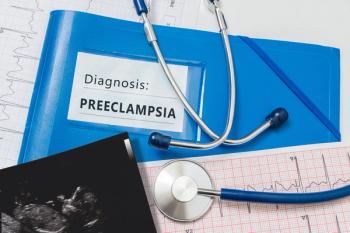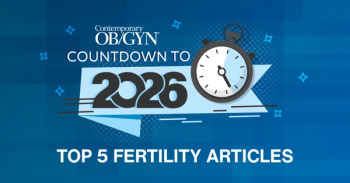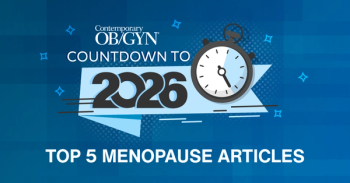
A study found that risk-stratified planned early-term delivery significantly lowers preeclampsia incidence without increasing cesarean birth.

A study found that risk-stratified planned early-term delivery significantly lowers preeclampsia incidence without increasing cesarean birth.

New guidelines provide recommendations for adjusting antiseizure medication doses during pregnancy and postpartum to support healthy outcomes.

New research links abnormal collagen remodeling at cesarean scars—not placental invasion—to placenta accreta spectrum risk.

A study links opioid-related diagnoses during pregnancy to increased maternal morbidity and neonatal complications.

A study found no clear evidence that menopause hormone therapy increases or reduces dementia risk.

Criteria-independent genetic testing identifies more women with pathogenic breast cancer variants than guideline-based approaches.

A study found that an investigational α-lactalbumin–targeting vaccine induced immune responses in 74% of participants at risk for triple-negative breast cancer.

A study found HPV vaccination is linked to reduced odds of severe vulvar and vaginal precancerous lesions.

New research shows that COVID-19 vaccination in pregnancy significantly lowers the risk of hospitalization and preterm delivery.

Take a quick look at everything you may have missed during the fourth quarter of 2025, including the latest FDA approvals and top stories.

Take a quick look at everything you may have missed in December, including the latest FDA updates, top stories, and expert recommendations.

Take a quick look at everything you may have missed in 2025, including the latest FDA updates, top stories, and expert recommendations.

Check the top women's health conferences of 2025.

Check out the 5 biggest videos of 2025, and review best practices.

Check out the 5 biggest well woman articles of 2025, and review best practices.

Check out the 5 biggest contraception stories of 2025, and review best practices.

Check out the 5 biggest fertility stories of 2025, and review best practices.

Check out the 5 biggest menopause stories of 2025, and review best practices.

Check out the 5 biggest obstetrics stories of 2025, and review best practices.

Check out the 5 biggest gynecology stories of 2025, and review best practices.

Can you guess what condition Tiny Tim had?

A study found that intimate partner violence and sexual violence against children drive substantial global mortality and disability.

Prenatal exposure to hot, humid conditions was associated with significantly reduced child growth, with effects far greater than heat alone.

CBD and THC reduced ovarian cancer cell growth and migration in vitro, with strongest effects seen when the compounds were combined in equal ratios.

Research suggests mesenchymal stem cell therapy may improve sexual quality of life and overall health span in older women.

A study found widespread nonadherence to cervical cancer screening guidelines, with screening modality linked to overscreening and underscreening.

Higher intake of ultra-processed foods before diagnosis was associated with increased breast cancer–specific and all-cause mortality in Black women.

A study found hydroxyurea exposure during pregnancy was not associated with increased risks among patients with sickle cell disease.

Recent FDA approvals and emerging research highlight how neurokinin receptor antagonists are expanding nonhormonal options for managing vasomotor symptoms.